Jeff Bezos, the founder and CEO of Amazon.com has agreed to buy the Washington Post newspaper for £163m ($250m). He is reportedly buying it and other print properties personally, rather than Amazon purchasing the paper – a key distinction.
It has been owned by the Graham family for 80 years.
The BBC reported that according to the Alliance for Audited Media, a newspaper auditing firm, the Washington Post was the seventh most popular daily newspaper in the US this year, with a total circulation of 474,767 – a 6.5 per cent decline on last year.
Like many comms pros who read the news, my thoughts turned to employees and I wondered what they had been told and the shift from a family owned business. So I decided to see if I could find news of their internal communication.
I found an open letter to employees that was published on the Washington Post website on 5 August by Jeff Bezos. It says:
To the employees of The Washington Post:
 You’ll have heard the news, and many of you will greet it with a degree of apprehension. When a single family owns a company for many decades, and when that family acts for all those decades in good faith, in a principled manner, in good times and in rough times, as stewards of important values – when that family has done such a good job – it is only natural to worry about change.
You’ll have heard the news, and many of you will greet it with a degree of apprehension. When a single family owns a company for many decades, and when that family acts for all those decades in good faith, in a principled manner, in good times and in rough times, as stewards of important values – when that family has done such a good job – it is only natural to worry about change.
So, let me start with something critical. The values of The Post do not need changing. The paper’s duty will remain to its readers and not to the private interests of its owners. We will continue to follow the truth wherever it leads, and we’ll work hard not to make mistakes. When we do, we will own up to them quickly and completely.
I won’t be leading The Washington Post day-to-day. I am happily living in “the other Washington” where I have a day job that I love. Besides that, The Post already has an excellent leadership team that knows much more about the news business than I do, and I’m extremely grateful to them for agreeing to stay on.
There will, of course, be change at The Post over the coming years. That’s essential and would have happened with or without new ownership. The Internet is transforming almost every element of the news business: shortening news cycles, eroding long-reliable revenue sources, and enabling new kinds of competition, some of which bear little or no news-gathering costs.
There is no map, and charting a path ahead will not be easy. We will need to invent, which means we will need to experiment.
Our touchstone will be readers, understanding what they care about – government, local leaders, restaurant openings, scout troops, businesses, charities, governors, sports – and working backwards from there. I’m excited and optimistic about the opportunity for invention.
Journalism plays a critical role in a free society, and The Washington Post — as the hometown paper of the capital city of the United States — is especially important. I would highlight two kinds of courage the Grahams have shown as owners that I hope to channel. The first is the courage to say wait, be sure, slow down, get another source. Real people and their reputations, livelihoods and families are at stake. The second is the courage to say follow the story, no matter the cost. While I hope no one ever threatens to put one of my body parts through a wringer, if they do, thanks to Mrs. Graham’s example, I’ll be ready.
I want to say one last thing that’s really not about the paper or this change in ownership. I have had the great pleasure of getting to know Don (Graham) very well over the last ten plus years. I do not know a finer man.
Sincerely,
Jeff Bezos
What do you think of what he said? Today I tweeted to ask people in my network and via @theICcrowd for their views. Does the language choice work, is it reassuring and authentic? This is what they said:
http://storify.com/AllthingsIC/jeff-bezos-buys-the-washington-post
What do employees think?
If you’ve not come across Glassdoor before, I recommend checking it out. It’s a website where employees share their opinions of working inside organisations and is worth being aware of if you’re not already.
 I had a look to see what was said about the Washington Post to get a glimpse into its culture. The latest employee comment was from 4 August – a day before the announcement. (The image opens larger so you can read the comments in full).
I had a look to see what was said about the Washington Post to get a glimpse into its culture. The latest employee comment was from 4 August – a day before the announcement. (The image opens larger so you can read the comments in full).
What about the feelings of employees towards the CEO family owner Don Graham?
According to the ratings on Glassdoor (31 of them), 81 per cent of employees who have written a review ‘approve of the CEO’ and it gets a 2.8 rating of 5 – an ‘OK’ score.
Go on, go and check the rating for your company, I know you’re going to…
The employee response
Bearing in mind we cannot see what other, if any, internal communication was sent to employees and if any face-to-face communication took place, what would your advice have been on the note above? Feel free to comment below or Tweet me @AllthingsIC.
Washington Post columnist Gene Weingarten has penned his own ‘open letter to Jeff Bezos‘ which is worth a read. I think this part in particular offers a glimpse of what employees are feeling:
Weingarten writes: “I think I speak for more than myself when I say that the main reason I have high hopes for your stewardship is that Don Graham said it was the right thing for the paper.
He said you are the right guy. That was enough for me.
“Great” is an overused term, and sports has rendered it almost meaningless, so I won’t say you have just bought a “great” newspaper. I’m not even sure you’ve bought a “newspaper” in any understood sense. You have bought a place filled with enormously talented and dedicated journalists who are, at the moment, terrified at the prospect of change we don’t really understand. We’ve already lost some fine people to that terror.
You are obviously a good businessman, and you are said to be a visionary. I hope you have a clear vision of where to take this remarkable enterprise. As you go there, please remember to kick up, and kiss down.”
Communicating change
What an intriguing expression – to kick up and kiss down in an organisation – would that work in your company? (Gene references the originator of that phrase in his column).
This year I was interviewed for Stephen Waddington @wadds and Steve Earl @mynameisEarl‘s upcoming book #Brandvandals (being published by Bloombsury in October). In it I discussed how there are often times when organisations have to stagger releasing news for good reasons – such as merger and acquisition situations.
People in companies (and often comms pros) have to sign non-disclosure agreements and time internal and external announcements carefully, particularly if the news can affect stock price. I experienced this when I was working at Visa in 2006, ahead of its Initial Public Offering, IPO.
However, the fact remains, as many of the IC pros above have highlighted, it is ideal to inform employees first of anything that will impact them. You don’t want to hear about changes to your workplace via the news while travelling to work.
I heard of an example recently where employees spotted on a news ticker that their head office was closing and said “I guess that’s what our all-employee meeting in five minutes is about then” – and I know that’s not an isolated case.
How do people react to and communicate change?

I could write far more than a blog post on this, but I’m going to share two resources with you: the Kübler-Ross change curve and Kotter’s building blocks of change.
These should be familiar to many of you, particularly if you have studied internal communication.
If you are working on any kind of change in your organisation, do look both of these up, they are a good blueprint if you want to learn more about communicating change:
The Kübler-Ross curve (often referred to as simply ‘the change curve’) is pictured on this page (it opens larger). It was created by Elisabeth Kübler-Ross in relation to the stages of grief people go through and was originally published in her 1969 book, On Death and Dying.
It is now often used to plot the stages that people go through when dealing with change in many contexts. If you imagine you’re creating an internal communication plan, it’s a useful reminder of the reactions and emotions that accompany change and people go through.
In 1995 John P. Kotter published a framework in Harvard Business Review on Leading Change: Why Transformation Efforts Fail (March-April issue, p9). He created an eight-step guide to the building blocks of change. It’s a top-down approach and worth reading if you haven’t before.
How do you communicate change? There’s not a one size fits all approach as it depends on many varying factors, but I’d love to know your thoughts. If you would like to share your story in the form of a guest post, check out my guidelines and do get in touch.
I’m intrigued to see what happens over time at the Washington Post and how they shift from a family owned business to their future.
Thank you for stopping by,
Post author: Rachel Miller
First published 8 August 2013.











[…] pulled together a great post looking at how the news of the sale was communicated to WaPo staffers, including an all staff email that starts with ‘You’ll have heard the news’. […]